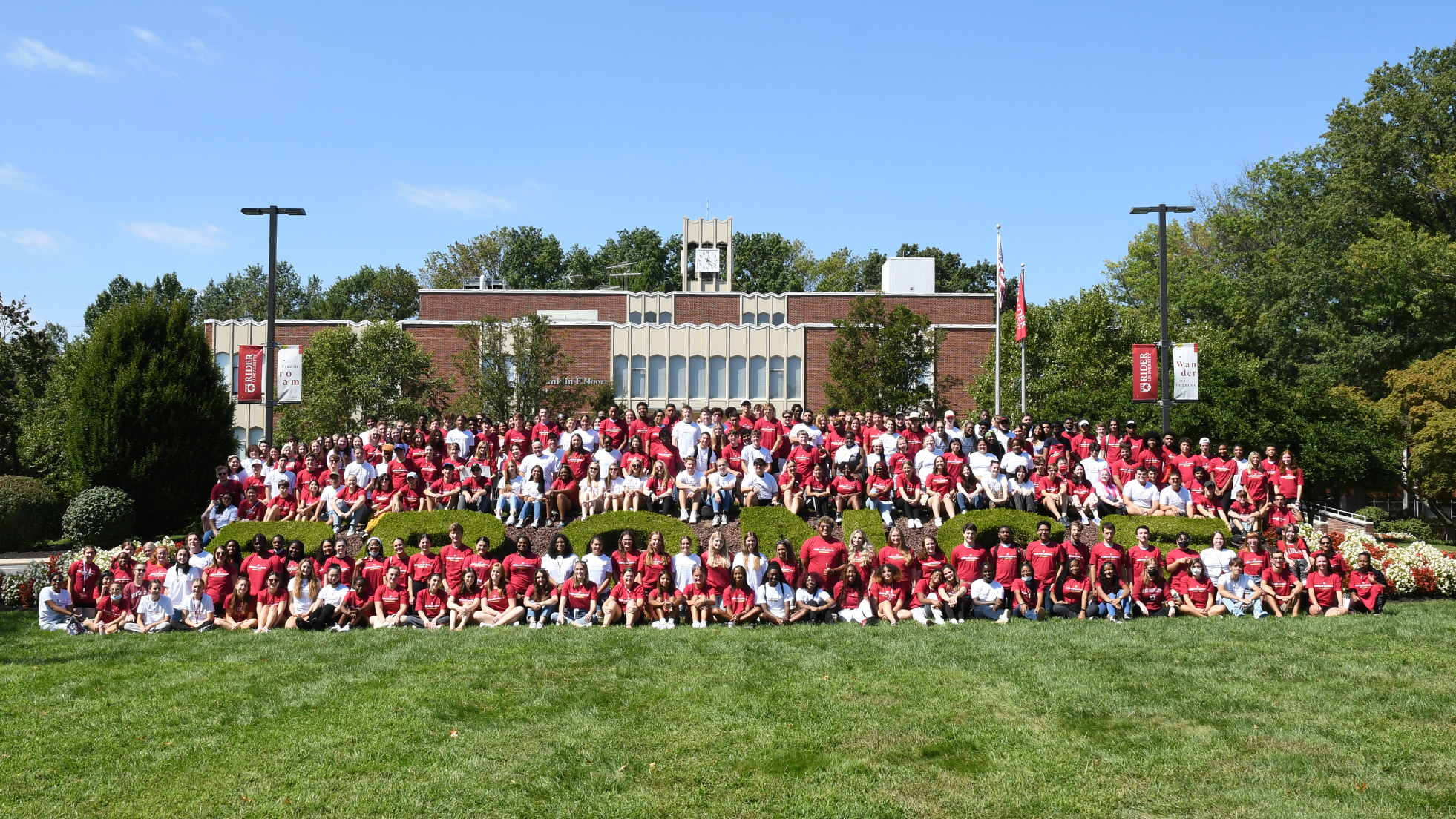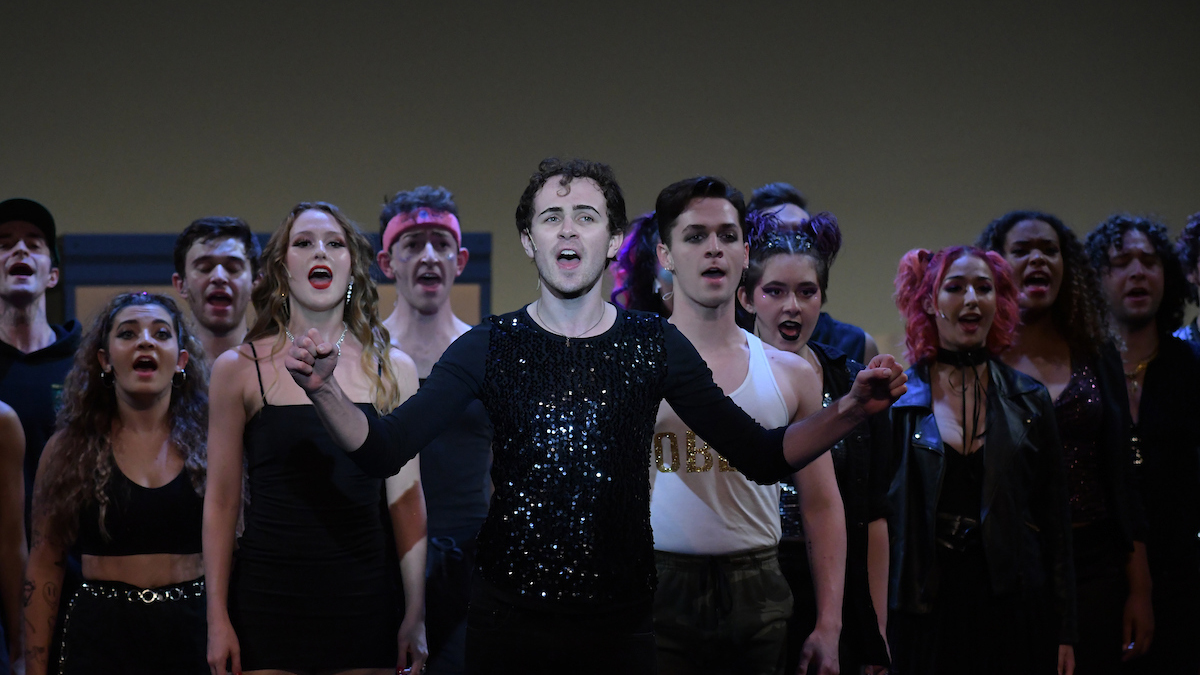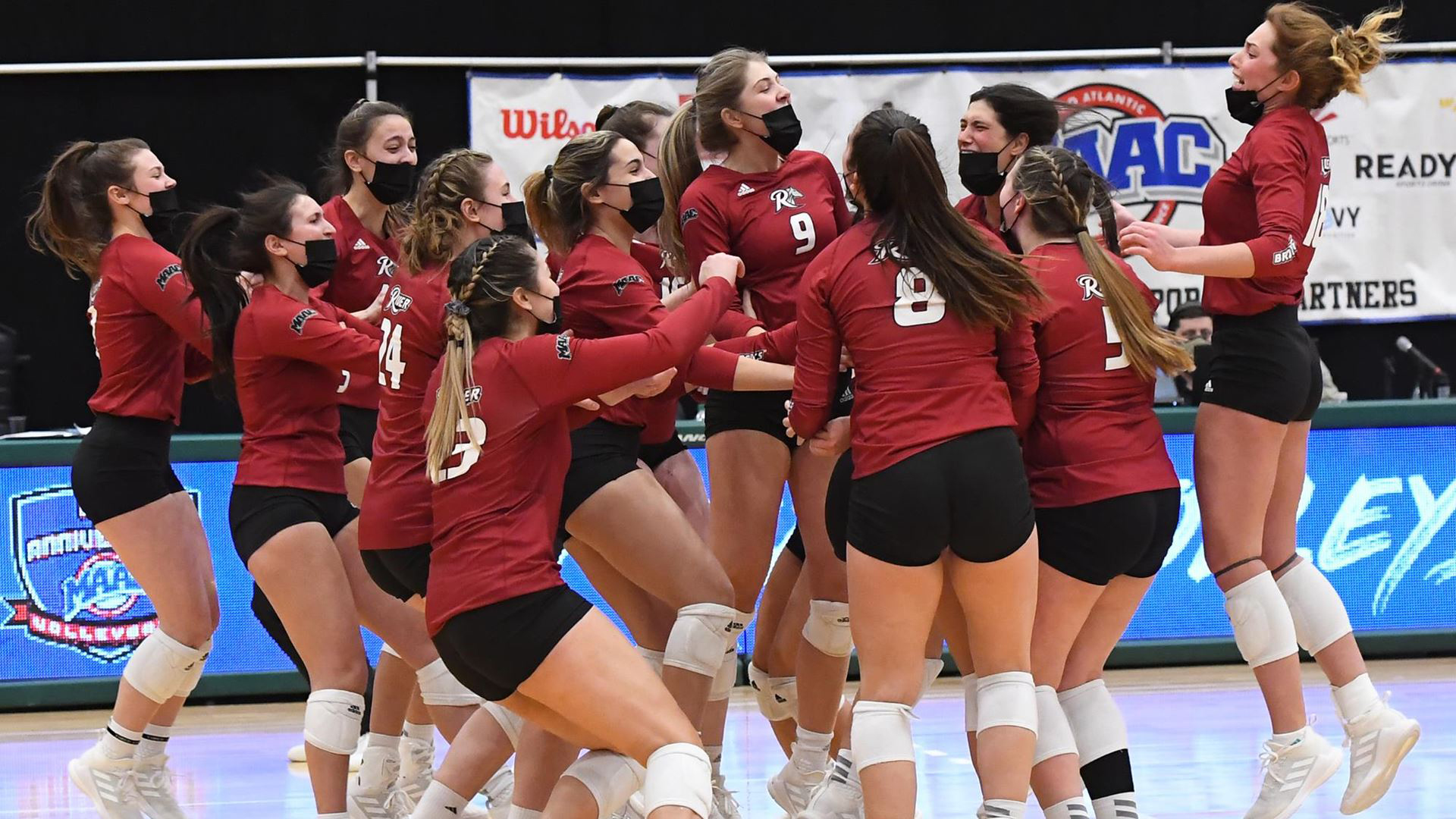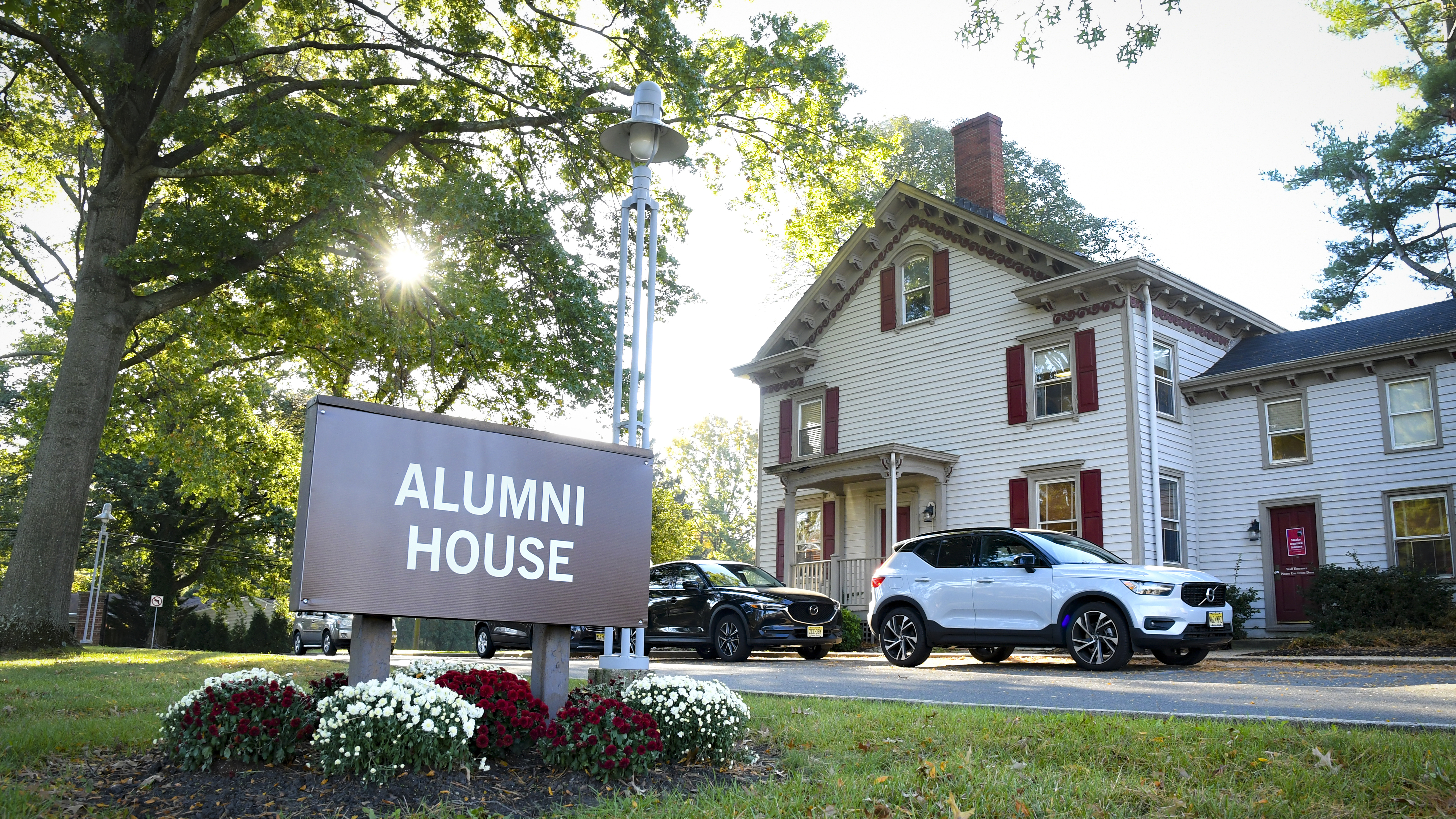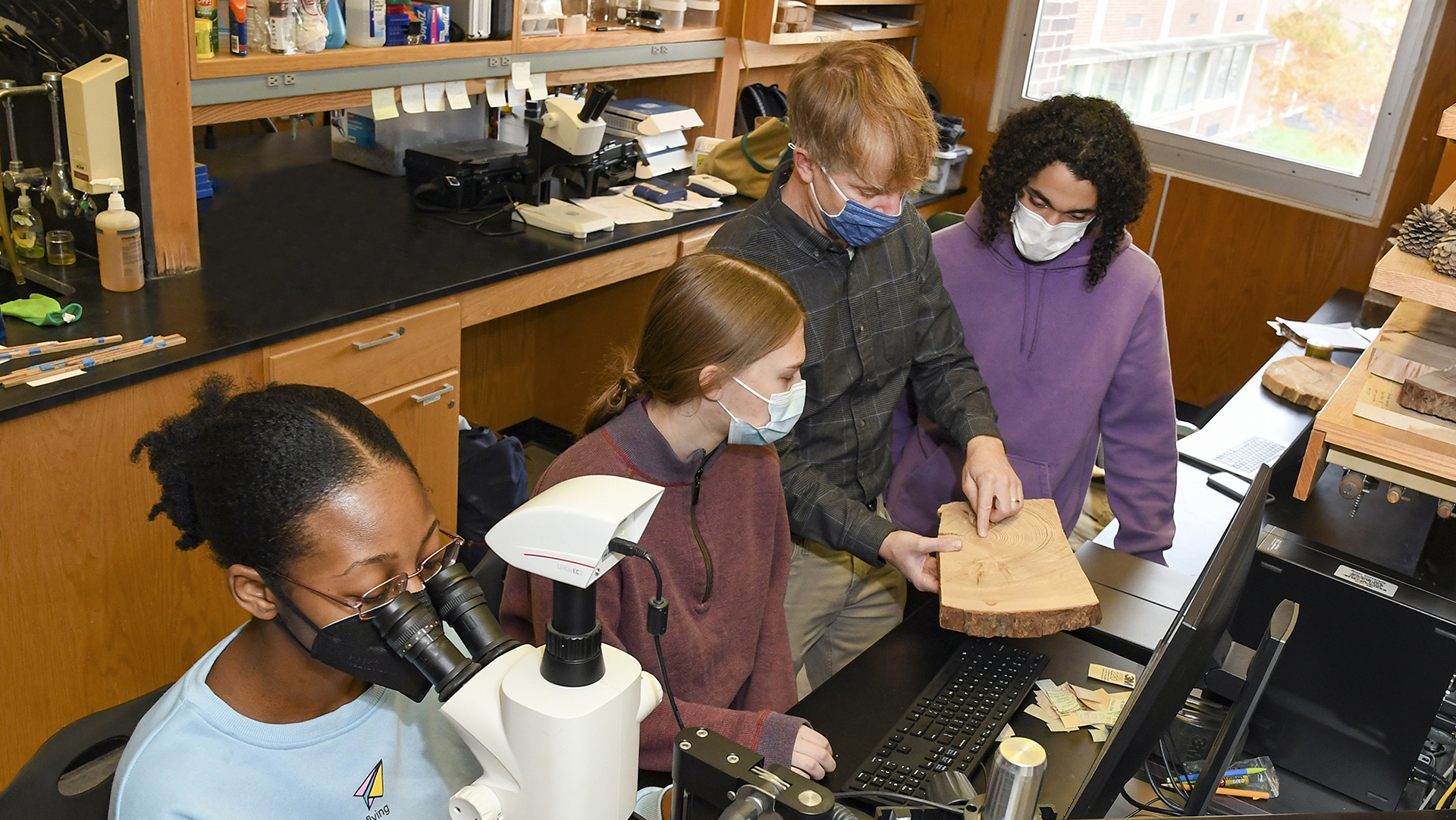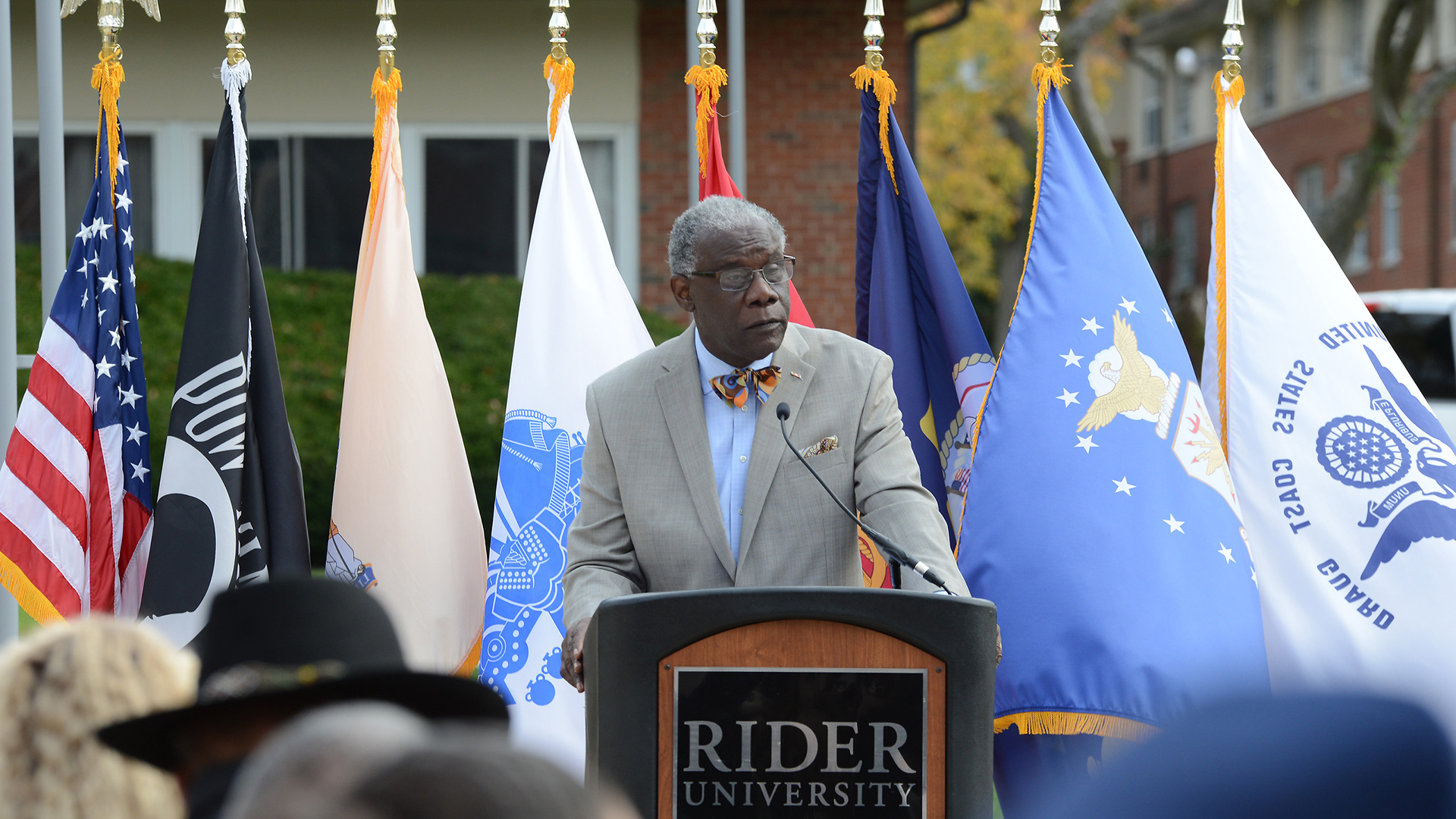Tuesday, Dec 21, 2021
Against the backdrop of the pandemic, the University continued to make progress
by Adam Grybowski
As the coronavirus pandemic extended into its second year, it continued to play a role in the operations and activities of Rider and the lives of its students, faculty, staff and alumni. The virus persisted even as we learned to live with it, continue our work and chase our dreams.
Against that backdrop, this is what made news in 2021 at Rider University.
Resuming in-person campus operations
Predicting the next step of the pandemic has proven to be anything but easy. Still, Rider optimistically announced in March that it would resume extensive in-person teaching, residential housing, and on-campus activities and events in the fall, which it did. And thanks to the cooperation of students, faculty and staff, as well as an effective vaccine, the return was largely safe and successful, with even study abroad making a comeback.
These 3 Broncs got their vaccine and free tuition
With the return to campus, Rider announced it would randomly select three students
who submitted proof of COVID-19 vaccination to receive free tuition for the 2021-22 academic year — meaning three lucky Broncs started the fall semester fully vaccinated and with their tuition fully paid. (One of the students who was originally selected, Carol Curtis '69, '11, asked Rider to choose someone else. And that’s only the start of her inspiring story.)
New faces
Resuming on-campus operations wasn’t the only major change from 2020. The new school year brought a new class of first-year students, new faculty and new Trustees. Rider also announced that it had appointed its first inaugural vice president of diversity, equity and inclusion/chief diversity officer, Barbara J. Lawrence, who began in September.
Return to in-person performances and events
After a year or more hiatus, the return to live performance and events at Rider was warmly welcomed. The Westminster Choir returned to live public performances following a 20-month absence because of the pandemic.
On campus, theater, musical theatre and dance also marked its return in the fall, and in December, An Evening of Readings and Carols resumed a beloved annual holiday tradition. Off campus, as theaters across the U.S. began to open their doors to patrons again, alumni joined casts of many North American Broadway tours.
Go Broncs!
Welcoming live audiences back wasn't only for the performing arts. After two championship seasons in the first half of the year, for volleyball and baseball, Rider Athletics announced in August that spectators would be permitted at indoor and outdoor home athletic events once again.
Launching the Cranberry Investment
Even as Rider was navigating the pandemic, it never wavered on its longstanding commitment to provide transformative student experiences that lead to career success.
In April, the University launched a new program called the Cranberry Investment that guarantees undergraduate students who fulfill their responsibilities will obtain an entry-level job related to their field of study or be accepted into graduate or professional school within six months of graduation.
Changing Van Cleve House to Alumni House
In October, Rider announced that it would remove the name “Van Cleve” from an 18th-century house on campus following the discovery that its namesake, Benjamin Van Cleve, supported slavery. Van Cleve, a Revolutionary War veteran and statesman, held enslaved people as a private citizen and spoke out in support of slavery and strengthened restrictions on enslaved peoples as a New Jersey legislator around the turn of the 19th century.
“Judged by the standards of his time or ours, Van Cleve’s actions and attitudes have no place in the Rider community,” said President Gregory G. Dell’Omo, Ph.D., and John Guarino ‘82, chair of Rider’s Board of Trustees in a joint statement announcing the name change.
Top rankings
This year, Rider continued to receive great rankings from U.S. News and World Report, The Wall Street Journal, and the Princeton Review, among others. By those organizations and publications, Rider was named a best value school, No. 27 among regional universities in the North, a top performer on social mobility, and for having one of the best undergraduate business programs. And for the 12th consecutive year, Rider was recognized as one of the nation’s most environmentally responsible colleges by the Princeton Review’s Guide to Green Colleges.
Support for science
As Rider eagerly anticipates the opening of the Science and Technology Center’s new wing in the upcoming spring semester, the sciences have not paused. New tracks in software engineering and artificial intelligence launched this semester in the Department of Computer Science and Physics, and several high-level grants were awarded this year to support ongoing faculty research.
Federal grants included a $1.6 million grant from The U.S. Department of Energy to support Dr. Kerrie Sendall along with her collaborators at the Smithsonian Environmental Research Center and a $93,133 grant from the National Science Foundation to support Dr. Daniel Druckenbrod as part of a multi-university project. Sendell will use the grant to study the effects of climate change on salt marsh plant communities in Maryland and Druckenbrod to generate data about how the climate has changed over time in southeast Asia over the past 500 to 1,000 years.
Continued legacies
What made the construction of the Science and Technology Center's new wing possible was last year’s $4 million gift from Michael J. Hennessy ’82, a devoted alumnus and former Trustee who died on Nov. 21 at 61. Next semester the building will be renamed the Mike and Patti Hennessy Science and Technology Center. His is not the only legacy that will continue to live on at Rider.
In March, Rider announced the first recipient of the Jonathan Yavelow Endowed Scholarship, a fund established by more than 120 alumni, colleagues and friends to honor the beloved science professor who died in October 2020 after teaching at Rider for 38 years. Biology major George Afoakwah will use his award to continue his studies at Rider in order to fulfill his aspirations of a career in either molecular biology or cardiology.
On Veterans Day, Rider dedicated the campus’ veterans affairs office for Dr. Eugene Marsh ’13, ’18, ’21, a passionate student, war hero and dedicated veterans’ advocate who died in January from complications of COVID-19. The Dr. Eugene Marsh Center for Veterans and Military Affairs is the first space at the University to be named for a Black alumnus. More than 150 of Marsh’s family and friends raised the money to renovate and rename the office.
Donors step up
Overall, since the pandemic began, Rider has raised $31 million from its supporters. That includes more than $13 million during this last fiscal year, which ended June 30. Rider saw a 19% jump in the total number of alumni donors, as well as increased giving among its youngest alumni. This group, known as BOLD alumni or Broncs of the Last Decade, contributed 89% more this year than last, with the number of young alumni donors rising more than 30%.
Of the totals raised this year, donors gave $10 million in restricted funds, which are used for specific purposes and often reflect the passion and commitment of the donor.
Passion. Purpose. Commitment. Just the things we’ll need to fulfill the promise of 2022.


